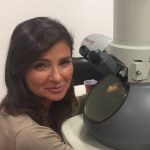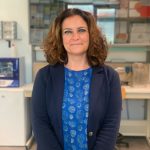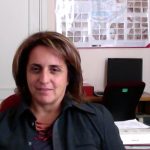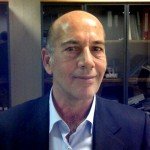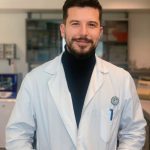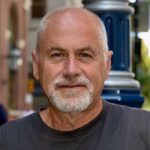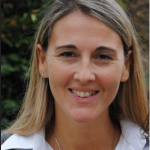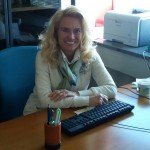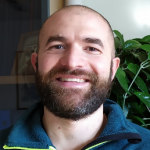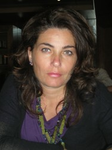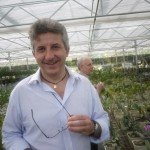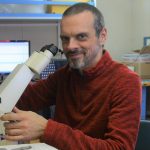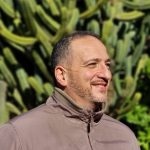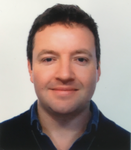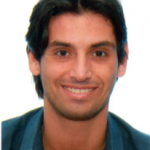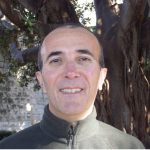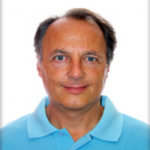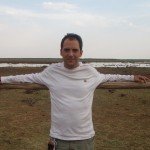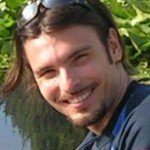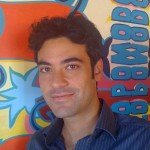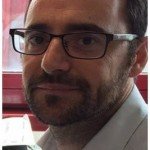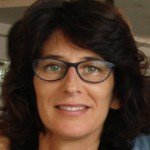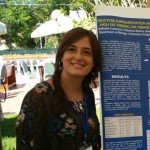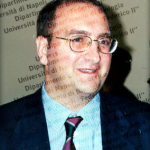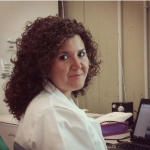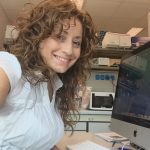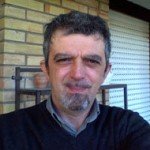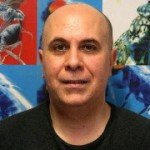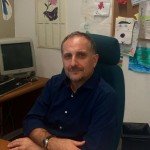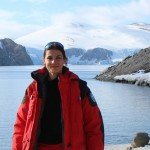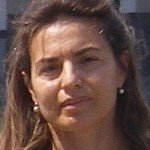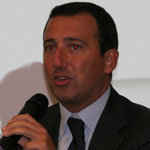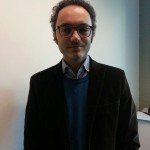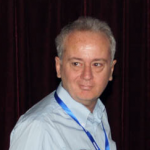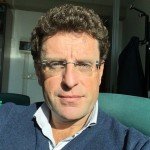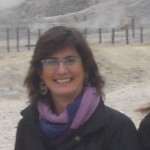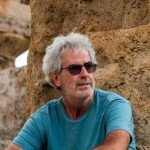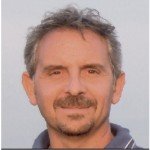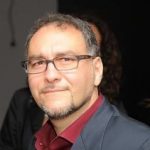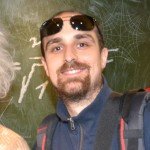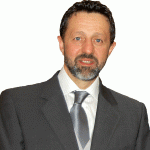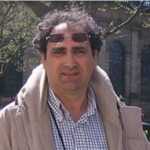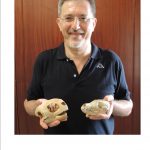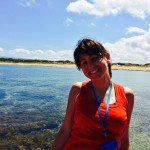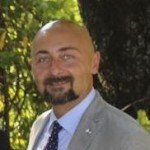The main objective of the Department of Biology is to develop scientific activities aimed both at deepening the basic biological knowledge and at applicative research in the fields of human health, environment and biotechnology. This mission is achieved by integrating numerous research topics that range, in a complementary way, in different disciplines.
In particular, the main purpose of the Department of Biology is to study living organisms in their complexity and diversity, embracing vast scientific areas ranging from macromolecular chemistry, molecular biology, cytology and cell physiology, to studying entire ecosystems and to apply biotechnological skills to solve health and environmental problems.
The quality and variety of skills of the researchers and the professors at the Department of Biology ensure an excellent quality of high education in biology, biotechnology and natural science.
- Home
- Research areas
Research Areas
The objectives of this research group are the study of:
- mechanisms of regulation of gametogenesis and their applications in reproductive biotechnology, and changes determined by environmental alterations;
- effects of xenobiotics on food and environmental neuroendocrine system and on the organogenesis of biomarkers;
- relations between phylogeny and morphogenesis to locate the interconnection between structure, function and adaptation.
The major international collaborations are with: Departemento Reproduccion Animal Conservacion de Recursos Zoogenéticos Madrid; National Research Centre Giza Cairo; MSc of Biodiversity Pars Herpetologists Institute Teheran; Biocenter University Wuerzburg; Oregon Health & Science University Portland; Russian Academy of Sciences Zoological Institute Moscow; Neurobiologie des Interactions Cellulaires et Neurophysiopathologie Université Marseille.
Members
The objectives of this research group are the study of:
- ecology and biology of algae and bryophytes, mechanisms of speciation and hybridization in flowering plants, systematic and phylogeny of plants, vegetation and conservation of flora, plant metabolites, ethnobotany;
- characteristics of the soils, decomposition of organic matter, biomonitoring of air quality, regulation of photosynthetic efficiency, ionizing radiation and plant productivity, strategies of acclimation, primary production and dynamics of microalgal communities in Antarctica;
- relations between carbon metabolism, the nitrogen and sulfur in photosynthetic organisms; effects of abiotic stress in plants, particularly those from heavy metals and salinity; production strategies of algal biomass for biofuel;
- possible effects of biotechnology knowledge.
The main collaboration with: ETH e University of Zurich, University of Ulm, Universidade Federal di San Paulo, University of Compostela, University of Freiburg, VU University of Amsterdam, Université de Lorraine, University of Granada, GSI Helmholtzzentrum für Schwerionenforschung , Center for Marine Science.
Members
The lines of research include the study of:
- molecular mechanisms underlying the phenomenon of protection by successive insults (preconditioning) in nerve cells;
- molecular mechanisms underlying gene expression regulation in brain development and function;
- effect of xenobiotics on the reproductive fitness of marine organisms and human health and identification of novel natural molecules with antibacterial, antifungal and anticancer activities;
- function of relaxings in embryonic development of vertebrates;
- regulation of tissue-specific gene expression in vertebrates and invertebrates;
- regulation of gene expression in genetic and acquired diseases of the mammalian skin;
- role of the homeostasis in the development of pancreatic progenitor cells and in human disease.
The major international collaborations are with: Helmholtz Zentrum, Institute for stem cell research (Munich); British Columbia, University of Victoria; Harvard Medical School; Dept. of Biochemistry, University of Lausanne (Lausanne); Institute of Biophysical Chemistry, Goethe University of Frankfurt; Kartov Institute of Physical Chemistry, e Obukhov Institute of Atmospheric Physics, Moscow.
Members
The lines of research include the study of:
- mechanisms of regulation of energetic and metabolic homeostasis;
- inflammation and insulin resistance;
- metabolic disorders and mitochondrial functionality;
- the role of ROS in response to dietary intervention, physical training and exposure to low temperatures;
- functional responses to environmental changes;
- cellular and molecular mechanisms of brain plasticity;
- function of chaperone proteins and/or markers of inflammation in the brain cholesterol and the beta amyloid metabolism;
- epigenetics: methylation in the repair of DNA damage; epigenetics in immune tolerance and autoimmunity; chromatin plasticity, transcription and epigenetic modifications.
International collaborations: Inserm, Toulouse France; IRB Barcelona, Spain; Universidade federal Bahia, Brazil; University of Fribourg, Switzerland; Columbia University New York, USA; UCF College of Medicine Orlando FL, USA; University of Southern Denmark, Odense, Denmark; Université de Lorraine, INRA, Vandoeuvre Cedex, France .
Members
The lines of research include the study of:
- proliferation, differentiation and signal transduction in Drosophila and human cells;
- non-coding RNAs, RNPs complex and their biotechnological applications;
- heterochromatic genes and chromatin remodeling in Drosophila;
- sexual genes determination in dangerous insect and their biotechnological applications;
- trascriptomics and bioinformatics applied to the study of dangerous insect;
- identification of the genes involved in flower development by RNA-sed:
- epigenetic changes, histone modifications and chromatin plasticity mediated by the MYC oncogene;
- proliferation, adhesion and inflammation in primary and transformed cells;
- epithelial differentiation and transformation;
- effects of plant extracts and probiotics of eukaryotic cells.
International partnerships: Russian Academy of Science. National Pingtung University of Science & Technology. University of Leipzig. Universität Hohenheim. Universidad Autónoma de Madrid. University of Zurich. FAO-IAEA (Austria). Agriculture Department USDA. CDFD (India), Huazhong Agricultural University. Oxitec biotech company. Charles University. Albert Einstein College of Medicine. Karlsruhe Institute of Technology. Institute of Toxicology and Genetics.
Members
The objectives of this research group are the study of:
- physiology and structure of bacterial cells and spores;
- use of bacteria and spores as probiotic elements through the analysis of the effect of bacterial molecules in vitro and in vivo;
- use of bacterial spores as vectors of mucosal vaccination;
- identification of receptors for marine pollutants;
- identification of molecules with antimicrobial activity and their mechanism of action;
- development of fermentation systems for the production of metabolites of interest from bacteria and yeasts;
- determination of the quality of water used for human consumption and of thermal and mineral waters;
- effect of molecules, nanoparticles, pharmaceutical compounds and personal care on bio-indicators for the determination of human and environmental risk.
The main international collaborations are with: Royal Holloway University of London (UK), Medical University of Gdansk (Poland), Loyola University (USA), University of Istanbul (Turkey), University of Liegi (Belgium), Université libre de Bruxelles (Belgium), University of Namik Kemal (Turkey).
Members
The objectives of this research group are:
- molecular characterization of enzymes and development of applications in industrial, environmental and clinical fields;
- study of monooxygenase complex and their use in bioremediation of aromatic compounds;
- use of enzymes and microbial cells for the biotransformation of molecules of biotechnological interest;
- analysis of antioxidant systems for the evaluation of oxidative stress and their applications in the field of pharmacology;
- study of bioactive peptide/peptidomimetic (with antimicrobial activity, antitumor, antiviral, immunomodulatory and anti-inflammatory effects) and of proteins that release bioactive peptides;
- study of the cellular response to DNA damage related to neoplastic transformation and apoptosis;
- analysis of ADP-ribosylation system in different organisms;
- molecular study of proteins involved in the pathogenesis of genetic diseases and drug development.
The main international collaborations are with: the Department of Biology of the University of Copenhagen; Centro de Biologia Molecular Severo Ochoa ; Universidad Autonoma de Madrid; Department of Chemistry, University of Cambridge; Department of Infectious Diseases and Immunology – University of Utrecht.
Members
The objectives of this research group are the study of:
- marine and terrestrial biodiversity: taxonomy and phylogenetic;
- neuroethology of marine animals models;
- canine ethology;
- function and physiology of smell;
- “welfare” of Cephalopods as laboratory animals;
- evolution and phylogeography of populations of wildlife;
- saproxylic insects, Ethnozoology and Archaeozoology;
- animal models of disease and comparative pathology of aquatic organisms.
The major international collaborations are with: Whitney Laboratory of Marine Bioscience, Florida University; Facultad de Ciencies UNAM, Mexico; Department of Cell Biology and Anatomy, University of Calgary; Palaeogenomics & Bio-Archaeology Research Network University of Oxford.


